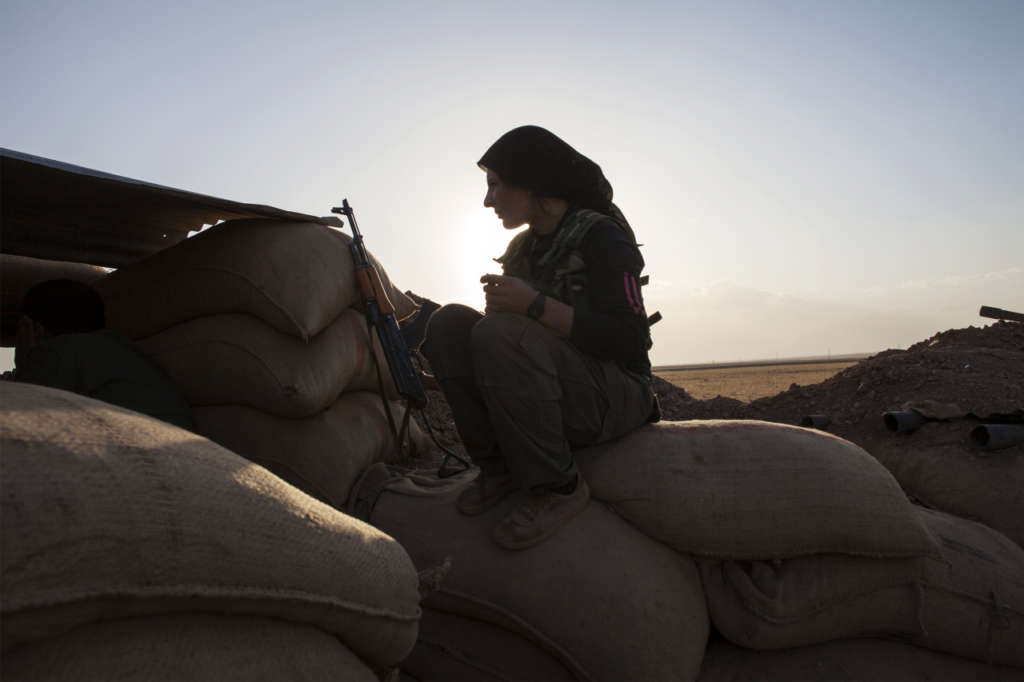London – At the time Iraqi forces, backed by the coalition, are close on liberating Mosul from ISIS, the Kurdish government is busy planning for the post-operations era and rebuilding the region.
In the early morning of a sunny day in London, Minister Falah Mustafa Bakir, Head of the Kurdistan Regional Government (KRG) Department of Foreign Relations, reviewed in an interview with Asharq Al-Awsat Kurdish-Iraqi relations.
Bakir is on a visit to London to open a new Kurdish Studies Center in Leicester University.
He evaluated the stages of war on ISIS in Mosul and the role of the Peshmerga, stressing that the sectarian policies of former Prime Minister Nouri al-Maliki contributed to the increased presence of ISIS.
Bakir assessed the war on ISIS and how the terrorist organization first emerged due to the policies of the federal government under Maliki, who started fighting the Kurdistan region and alienating the Sunnis. He added that there was never a real partnership.
Peaceful protests then erupted in Anbar calling for justice and necessary services, but they were met with a military response. The case is now different in that both the Peshmerga and Iraqi forces are cooperating. He added that the operations lasted from October 17 to 27, 2016 after Peshmerga managed to break ISIS’ first line of defense.
The minister explained that the “war was costly and it destroyed the infrastructure and fabric of the society.”
He added that Peshmerga lost about 1,700 individuals, while 9,790 were injured and 62 are missing.
When asked about the destroyed areas and who will rebuild them, Bakir said that once funds are available, “rebuilding is easy but, regaining trust is hard.” He asked the international community to deal with the Kurdistan region with the “utmost respect”, saying that had it not it been for the Peshmerga, ISIS would have invaded new areas.
He added there are several post-liberation scenarios, including whether to remain on the current administration or adopt self-governance or local government. He urged Baghdad to address this issue as well, and not just the liberation.
When asked about the Popular Mobilization Forces (PMF), Baker said that it played an important role especially after cleric Ali Sistani issued an order to fight ISIS and join the military forces. He added however that like any other forces, there are undisciplined members. He did say that many sides have expressed their concerns now that the PMF is part of Iraqi military forces.
Bakir wondered whether they want to build a strong democratic Iraq or an Iraq ruled by a new military regime that is the same as the regime before it. He did however say that this is a premature talk because the war on ISIS is still ongoing.
Speaking on differences with the Iraqi government, Bakir said that despite being on the frontlines, the government did not cooperate with Kurdish forces. It did not support them militarily or provide them with the necessities to participate in the battles.
In February 2014, the Kurdistan budget was cut by Baghdad which has placed the region in a difficult situation that persists till this day. Bakir even accused the Iraqi government of not giving Kurdistan part of the World Bank’s loans.
The budget freeze was the first economic blow they received. It was followed by having to fight ISIS and receive over one million displaced citizens, in addition to dealing with the drop in oil prices.
The minister said that Kurdistan has welcomed all the displaced despite the financial difficulties and the impact they have on the market, rent prices, food and other matters. He added that Kurdish citizens view this as their duty.
The bottom line is whether Kurdistan is Baghdad’s partner or not, said Bakir.
Concerning the future relations between Erbil and Baghdad, Bakir said it depends on talks between both parties. Kurdistan wants peaceful independence achieved through dialogue.
PM Haider al-Abadi had visited Salmaneyya before heading on his latest trip to Washington. Bakir viewed this as Abadi’s attempt to show US officials that relations with Kurds are normal. He added there are many major political differences between Erbil and Baghdad now, and that they only cooperate militarily.
Regarding US President Donald Trump’s policies on Kurdistan, Bakir expressed his hopes of positive relations, adding that Vice President Mike Pence had recently contacted President of Kurdistan Region Masoud Barazani.
When asked about the situation in Syria and the role of Kurds there, Bakir said it is more complicated than Iraq. In Iraq there is a clear front, while in Syria there are several.
The minister hoped Kurdish people would unite and share a united vision.
As for Turkey, Bakir said they are happy with the level of relations they maintained, in addition to the political understanding that has been achieved.
The Kurdistan region believes it should maintain good ties with all countries as it is time to build strong relations based on mutual respect and common interests.
Recently, Saudi FM Adel al-Jubeir visited Baghdad, which Bakir stated is important to achieve better relations between the two countries. He also said that Kurdistan has seven diplomatic representatives in Arab countries and a Saudi Consulate in Erbil. He also hoped for a larger Arab presence in Baghdad.
Finally, regarding the economic situation, Bakir said the Kurdish government issued several measures to reform its financial and economic policies. He explained that the government had restructured the ministry of finance and economy and directed its incomes towards a diversified economy that does not depend solely on gas and oil.
The government also issued electronic registration for all citizens, making it easier to identify those who receive benefits and thus reducing expenditure and encouraging involvement in the private sector.
